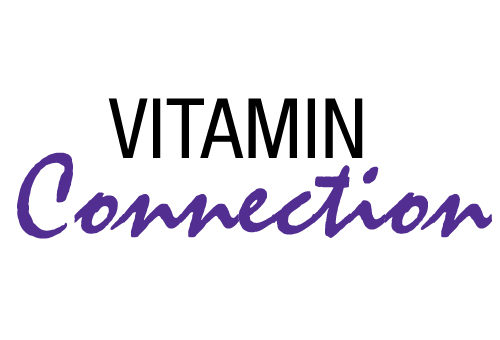Last month, we began a discussion about the many health benefits of Pycnogenol with Frank Schönlau, Ph.D., scientific director of Horphag Research (distributor of Pycnogenol). He joins us again this month to highlight some more exciting research about how Pycnogenol supports cardiovascular health, women’s health, skincare and more.
Dr. Schönlau earned degrees in chemistry (1991) and biochemistry (1995) from the University of Münster, Germany. He researched protein anti-cancer drugs in the framework of the European Community research program “Europe against Cancer.” At the Institute of Experimental Dermatology, University Clinics of Münster Germany, Dr. Schönlau investigated chronic inflammatory processes, wound healing, vascular disorders and angiogenesis.
In 1999, Dr. Schönlau joined Horphag Research as director for scientific communications and is now scientific director. Horphag Research supplies Pycnogenol, the only standardized pine bark extract according to U.S. Pharmacopeia, to companies that produce a variety of Pycnogenol-containing products. Dr. Schönlau has published scores of research articles in peer-reviewed international basic science and medical journals on the role and efficacy of Pycnogenol in various pathologies.
Passwater: The versatility of Pycnogenol is amazing. This one supplement brings so many health benefits over so many categories. The versatility makes classification difficult. It is a Polypill, not just a heart pill or antioxidant or any other single label.
We have discussed Pycnogenol’s heart benefits in this column several times before, but it is important to add the recent study showing that Pycnogenol improves artery endothelial function. Please explain what this means, why it is important and the study results.
Schönlau: The body’s first line of defense against coronary artery disease, the most common type of heart disease, are the endothelial cells that line artery walls. These cells serve as the “traffic cop” for blood flow, directing blood to the appropriate area of the body such as the heart, brain, muscles or digestive system to support the body’s actions.
The study, published in the January 2012 issue of European Heart Journal, describes a significant improvement of endothelial function in patients with stable coronary artery disease (20). This randomized, double-blind, placebo-controlled, crossover study was carried out at the Clinic for Cardiology at the University Hospital Zurich in Switzerland. The study investigated 23 patients with stable coronary artery disease, as documented by coronary angiography, nuclear imaging or positive stress test. All patients were under excellent medical control, taking aspirin, blood thinners, statins, blood pressure medications and other drugs, such as diabetic medication, as required by the individual patient.
Patients were divided into two groups. Patients in Group One received Pycnogenol (200 mg/d) for eight weeks, and then took a placebo for another eight weeks. Group Two received the opposite sequence of placebo first, followed by eight weeks with Pycnogenol. Before and after the eight weeks of treatment, blood samples were taken and the flow-mediated dilatation of the brachial arteries in the upper arm was established.
After eight weeks of treatment, the study found that Pycnogenol taken on top of prescription medication increased artery dilation by 32%, a significant change, while it remained unchanged in the group given placebo on top of their prescription regimen. Pycnogenol demonstrated significant effects on a critical measure of endothelial function, reducing plasma levels of endothelin-1. This was a crossover study, so patients previously taking Pycnogenol got placebo and vice versa. The results were clear-cut; patients previously given placebo now showed a significant improvement of their artery dilation when they took Pycnogenol. This study fascinates me because a dietary supplement here proves to restore the body’s own mechanism for naturally regulating artery blood flow and this can be identified on the background of a plethora of prescription medications given at the same time.
Passwater: That’s one more way in which Pycnogenol protects against heart disease. Another recent study again confirmed the many benefits of Pycnogenol in alleviating the discomforts of menopause. Please tell us about this study.
Schönlau: A clinical trial published in February in The Journal of Reproductive Medicine found that Pycnogenol minimizes climacteric symptoms of menopausal women (21). Perimenopause, the transition that women experience leading into menopause, lasts an average of four years and is marked by a number of uncomfortable symptoms including hot flashes, insomnia, nighttime sweating, palpitations, depression, anxiety and memory problems.
The study was conducted at Keiju Medical Center in Ishikawa Prefecture, Japan and examined 170 perimenopausal women. A randomized, placebo-controlled, double-blind, parallel-group clinical trial was conducted and participants were given either placebo capsules or 30 mg of Pycnogenol twice per day over a period of 12 weeks.
The study researchers noted that since climacteric symptoms vary from woman to woman and can manifest as any number of discomforts, it is often a difficult condition to effectively treat. However, they found that Pycnogenol aided in the relief of a number of these symptoms, which helps improve the quality of women’s life during this transitional period. Takafumi Kohama, M.D., and his group discovered that Pycnogenol is most effective for lowering hot flashes and nighttime sweating. Dr. Kohama noted that thermal dysregulation may relate to the inability of menopausal women to radiate off excess heat because peripheral blood vessels insufficiently expand. Pycnogenol supports vascular relaxation, which allows the body to rid itself of excess heat, subsiding the sensation of hot flashes and nighttime sweating.
This study confirms findings from two previous studies (one of which investigated 200 menopausal women in a double-blind, placebo-controlled fashion for half a year) that Pycnogenol effectively improves menopausal signs and symptoms.
Passwater: Women may also be interested to know the details of another recent study that shows Pycnogenol improves skin elasticity and hydration.
Schönlau: Pycnogenol was found to improve skin hydration and elasticity in women in a clinical trial published in December 2012 in Skin Pharmacology and Physiology (22). The study was conducted at the Leibniz Research Institute for Environmental Medicine (IUF) in Dusseldorf, Germany and examined 20 healthy women, aged 55–68 years. The women were given 75 mg of Pycnogenol per day over a period of 12 weeks. Skin hydration, skin elasticity and skin fatigue were assessed by non-invasive biophysical methods at trial start and after six and 12 weeks. In addition, at the beginning and again after 12 weeks of Pycnogenol supplementation, a biopsy was obtained to assess gene expression related to collagen and hyaluronic acid synthase. The hyaluronic acid synthase is the body’s own source of hyaluronic acid, a highly charged macromolecule that binds large quantities of water in tissues. Pycnogenol thus supports the body’s generation of hyaluronic acid, to keep the skin moist and tout. Increased collagen synthesis and hyaluronic acid are found in most connective tissues, including cartilage. Also, Pycnogenol enhanced skin elasticity by 25%, in addition to skin hydration by 8%, and was especially noticeable in women who had dry skin from the start, with an increase of 21%.
This study confirmed that Pycnogenol improved skin at both physiological and molecular levels. Pycnogenol increased hyaluronic acid in women by 44% after 12 weeks of supplementation. Hyaluronic acid binds large quantities of water in the skin and in other tissues, such as cartilage. An increased amount of hyaluronic acid explains the increased skin hydration, higher elasticity and overall smoother skin appearance found in women taking Pycnogenol.
Passwater: From beauty to brains, another recent study found that Pycnogenol also improves sustained attention and memory.
Schönlau: Pycnogenol was found to significantly enhance mental performance in healthy college students in a clinical trial published in December 2011 in Panminerva Medica (23). The study was conducted at Pescara University and examined 53 Italian university students, aged 18-27. Students were assigned to a control or test group. The test group was given 100 mg of Pycnogenol per day over a period of eight weeks. Students’ mental performance was evaluated using cognitive function tests that were carried out by computer-assisted methods. Students’ final exam scores were also evaluated. Verbal IQ tests ensured that students recruited for the study demonstrated highly comparable intelligence. The study found that Pycnogenol effectively enhanced mental performance, including improved sustained attention, memory and mood in students within an eight-week period.
Students taking Pycnogenol had higher test scores on university exams than the control group, and alertness and contentedness improved significantly within the Pycnogenol group. Levels of anxiety decreased by 17%.
Several physiologic contributions of Pycnogenol may have contributed to the improved cognitive function of investigated students, namely antioxidant potency and blood circulation improvement. Oxygen-rich blood supply to the brain plays an important role for cognitive function and the improvement of vascular function with Pycnogenol may be responsible for the beneficial effects found in this study.
This study confirms previous findings that Pycnogenol effectively improves cognitive function. Research published in the Journal of Psychopharmacology demonstrated that Pycnogenol supplementation improved both numerical working memory as well as spatial working memory in Australian senior citizens.
Passwater: Still another recent study shows that Pycnogenol aids asthmatics. What is involved here?
Schönlau: Previous research has demonstrated the natural supplement’s antioxidant activity and powerful anti-inflammatory properties that work to combat the inflammatory processes of the bronchi that cause them to constrict and swell, making breathing difficult. Previously, Pycnogenol was shown in three clinical studies to lower leukotriene values, inflammatory mediators responsible for asthma symptoms and, to some extent, allergic rhinitis (i.e., hay fever). Asthmatics experience periods of wheezy breathing and breathlessness with intervals of relative or complete freedom from symptoms. Antigenic substances such as pollen, mites in house dust and animal hair may challenge the immune system leading to airway obstruction, while chemical irritants like tobacco, smoke and air pollution may also trigger symptoms. Pycnogenol normalizes the immune response that can stave off harmful inflammation such as in asthma as well as hay fever.
In the new study you mentioned, published in November 2012 in Panminerva Medica, it was found that Pycnogenol improved the control of allergic asthma, reducing night awakenings caused by asthma symptoms by nearly 50% (24). Asthma patients who used Pycnogenol experienced reduced dependence on inhalation corticosteroid (ICS), which is commonly administered through an inhaler, and required fewer visits to a doctor for asthma symptoms.
The new study, conducted at the Department of Biomedical Sciences at University of Pescara, Italy examined 76 patients, aged 25–45 years, with mild to moderate allergic asthma due to dust mites. Provocation with dust mite allergen was carried out to confirm allergen specificity. During the study participants were split into two groups. One group was given 100 mg of Pycnogenol per day in addition to sustaining their use of ICS. The other group continued their use of ICS without additional supplementation. Daily ICS dosage and common asthma symptoms were evaluated in participants of both groups throughout a six-month period.
The study found that Pycnogenol supplementation allowed for lowering the daily required ICS dosage in 55% of participants. In the control group, only 6% of patients were able to control their asthma with a lower steroid dosage, while 19% had to switch to a higher regimen to control their asthma. In the Pycnogenol group, use of a salbutamol rescue inhaler was required every fifth day on average, while in the control group inhalers were required every second day on average to deal with sudden asthma symptom flare-ups.
Additionally, Pycnogenol reduced night awakenings caused by  asthma symptoms to only half the frequency as before, while no significant change was found for the control group. Pycnogenol also lowered the amount of days with a more than one asthma score, which is a measure used to evaluate asthmatic patients’ degree of respiratory distress.
asthma symptoms to only half the frequency as before, while no significant change was found for the control group. Pycnogenol also lowered the amount of days with a more than one asthma score, which is a measure used to evaluate asthmatic patients’ degree of respiratory distress.
Passwater: Well, Dr. Schönlau, that is an amazing amount of useful research. If this pace keeps up, we will have to chat more often to keep our readers informed. Thank you, once again. WF
Dr. Richard Passwater is the author of more than 45 books and 500 articles on nutrition. Dr. Passwater has been WholeFoods Magazine’s science editor and author of this column since 1984. More information is available on his Web site, www.drpasswater.com.
References
1. R.A. Passwater, “Pycnogenol: Powerful New Antioxidant” WholeFoods Magazine, 14 (3), 83–86 1991.
2. R.A. Passwater, Live Better Longer (Basic Health Publications, Laguna Beach, CA, 2007).
3. R.A. Passwater, User’s Guide to Pycnogenol: Nature’s Most Versatile Supplement (Basic Health Publications, Laguna Beach, CA, 2005).
4. R.A. Passwater, Pycnogenol for Superior Health (McCleery & Sons, Fargo, ND, 2001).
5. R.A. Passwater, All About Pycnogenol (Avery, New York, NY, 1998).
6. R.A. Passwater, Pycnogenol: The Super “Protector” Nutrient (Keats, New Canaan, CT, 1994).
7. R.A. Passwater, The New Superantioxidant—Plus (Keats, New Canaan, CT, 1992).
8. R.A. Passwater, “Pycnogenol: A New, Natural Solution for Joint Health,” WholeFoods Magazine, November 2008.
9. R.A. Passwater, “Healthy Arteries and Pycnogenol,” WholeFoods Magazine, February 2011.
10. R.A. Passwater, “Pycnogenol Is Protective Against Heart Disease, Diabetes and Inflammation,” WholeFoods Magazine, January 2011.
11. R.A. Passwater, “Sun Damage, Skin and Pycnogenol,” WholeFoods Magazine, August 1994.
12. R.A. Passwater, “Bioflavonoids, ‘Vitamin P’ and Inflammation,” WholeFoods Magazine, September 1994.
13. M. Kurlbaum et al., “Facilitated Uptake of a Bioactive Metabolite of Maritime Pine Bark Extract (Pycnogenol) into Human Erythrocytes,” PLoS One. 8 (4), e63197, 2013 Apr 30. doi: 10.1371/journal.pone.0063197. 2013
14. K. Grosse Düweler et al., “Urinary Metabolites of French Maritime Pine Bark Extract in Humans,” Pharmazie 55 (5), 364–368, 2000.
15. T. Grimm et al., “Single and Multiple Dose Pharmacokinetics of Maritime Pine Bark Extract (Pycnogenol®) After Oral Administration to Healthy Volunteers,” BMC Clin. Pharmacol. 6 (4): 1–12 (2006).
16. M. Kurlbaum and P. Hogger, “Plasma Protein Binding of Polyphenols from Maritime Pine Bark Extract (USP),” J. Pharm. Biomed. Anal. 54 (1), 127–132 (2011).
17. K. Uhlenhut and P. Hogger, “Facilitated Cellular Uptake and Suppression of Inducible Nitric Oxide Synthase By A Metabolite Of Maritime Pine Bark Extract (Pycnogenol),” Free Radic. Biol. Med. 53 (2), 305–313 (2012).
18. R. Canali et al., “The Anti-Inflammatory Pharmacology of Pycnogenol in Humans Involves COX-2 and 5-LOX Mrna Expression in Leukocytes,” Int. Immunopharmacol. 9 (10), 1145–1149 (2009).
19. G. Belacro et al., “Pycnogenol® Supplementation Improves Health Risk Factors in Subjects with Metabolic Syndrome,” Phytother. Res., 2013 Jan 28. doi: 10.1002/ptr.4883 [Epub ahead of print].
20. F. Enseleit et al., “Effects of Pycnogenol on Endothelial Function in Patients with Stable Coronary Artery Disease: A Double-Blind, Randomized, Placebo-Controlled, Cross-Over Study,” Eur. Heart J. (33) 13, 1589–1597 (2012).
21. T. Kohama and M. Negami, “Effect of Low-Dose French Maritime Pine Bark Extract on Climacteric Syndrome in 170 Perimenopausal Women: A Randomized, Double-Blind, Placebo-Controlled Trial,” J. Reprod. Med. 58 (1–2), 39-46 (2013).
22. A. Marini et al., “Pycnogenol® Effects on Skin Elasticity and Hydration Coincide with Increased Gene Expressions of Collagen Type and Hyaluronic Acid Synthase in Women,” Skin Pharmacol. Physiol. 25 (2), 86–92 (2012).
23. R. Luzzi et al., “Pycnogenol Supplementation Improves Cognitive Function, Attention and Mental Performance in Students,” Panminerva Med. 53 (3 Suppl 1), 75–82 (2011).
24. G. Belcaro et al., “Pycnogenol® Improvements in Asthma Management,” Panminerva Med. 53 (3 Suppl 1), 57–64 (2011).
Published in WholeFoods Magazine, December 2013










